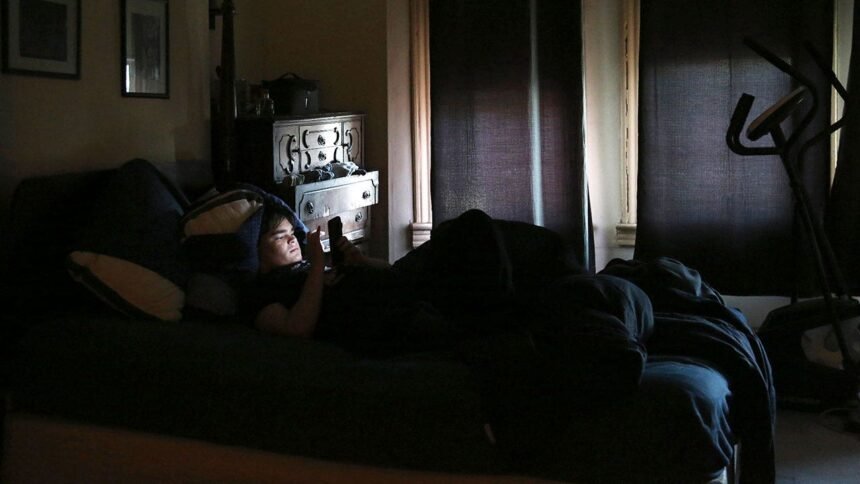[ad_1]
According to the National Sleep Foundation, over 50% of Americans utilize their mobile phones within the hour leading up to bedtime. Fostering higher sleep quality, experts urge individuals to power down their devices at an increasingly earlier time, suggesting the reformation of nighttime routines to replace screen time with activities such as reading, or time spent with family for instance.
Jessica Peoples, for example, confesses to spending between 30 to 60 minutes on her phone before sleep, predominantly browsing social media. Despite efforts to reduce this usage, she walks to the same tune as over half of the American population who engage with their phones an hour prior to sleep as reported by a foundation survey.
The optimal time to turn off devices and set them aside as suggested by experts is long before bedtime. This precaution is suggested in order to allow the brain adequate time to unwind and prepare for deep sleep – a restorative state that significantly influences bodily functionalities. Drawing a parallel, professor Melissa Milanak argues the brain should be given time to “cool down”, much like how a casserweet from the oven wouldn’t be immediately placed in a refrigerator.
Replacing the bedtime phone routine isn’t necessarily easy, but the profound links between sleep deficiency and poor health outcomes such as anxiety and obesity are hard to dismiss. Mobile phones have been found to exceptionally disrupt the body’s circadian clock which regulates sleep amongst other hormones. Clinical psychologist Lisa Strauss points out how the brain perceives electronic light, irrespective of the much defamed blue light from phones, as sunlight – this can impede the production of melatonin thereby delaying deep sleep. She also warns of the ‘technostress’ experienced by users from constant checking of emails and other social media pressures.
To curb this unhealthy habit, redesigning one’s night routine is important. This may include creating more rewarding activities like reading a physical book, listening to a podcast, spending time with family, or even taking a warm bath. Strauss and Milanak suggest physically distancing yourself from your phone to disassociate the device with falling asleep. Restrict your phone usage as much as possible during the night, if completely steering away doesn’t seem realistic. Set your phone on night mode or reduce its screen brightness as much as possible.
In conclusion, although the need for solitude and relaxation is undeniable, perhaps these moments could be planned earlier in the day, allowing for a healthier sleeping pattern.
[ad_2]









